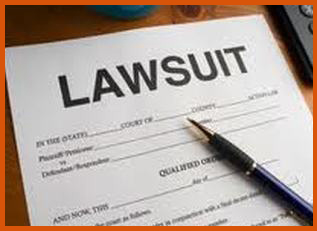 A civil suit is a type of lawsuit in which one party accuses another of damage. These differ from criminal suits, in which the state or regional body prosecutes a defendant because laws have been broken. It is possible for both criminal and civil charges to be filed for the same incident; however, the charges are usually tried by different courts and do not affect one another. A civil suit is a type of lawsuit in which one party accuses another of damage. These differ from criminal suits, in which the state or regional body prosecutes a defendant because laws have been broken. It is possible for both criminal and civil charges to be filed for the same incident; however, the charges are usually tried by different courts and do not affect one another.
Unlike criminal trials, in which a convicted defendant may be sentenced to imprisonment, successful civil suits usually require the at-fault party to pay money, also called damages, to the other party. If money is not available, property or other remedies may be substituted. In cases where the civil suit is about preventing or allowing certain actions, such as restraining orders, the role of the court is to choose to issue orders rather than award damages.
There are many different types of civil suit that can be filed. Contract disputes, personal injury claims, product liability, custody and alimony issues, discrimination, and property disputes are all common types of civil issues. Some courts may divide cases by the amount of money sought in the lawsuit; cases where the value is relatively low are often sent to small claims court.
Civil suits are generally considered to be about individual rights and grievances. In a criminal case, a victim may ask a local or state official to file criminal charges, but it is at the discretion of the official whether to do so. Civil suits allow individuals to bring charges against one another without the permission and action of a district attorney or state prosecutor.
 It is important to remember that while these cases are brought by one party against another, the parties are not necessarily individuals. A civil suit can be brought by an individual against a company or corporation; for instance, an individual can pursue a civil suit against a hospital for malpractice. An employee breaching a confidentiality agreement may be grounds for a company to file a civil suit against the individual. Additionally, the parties may be two companies, organizations, or corporations. It is important to remember that while these cases are brought by one party against another, the parties are not necessarily individuals. A civil suit can be brought by an individual against a company or corporation; for instance, an individual can pursue a civil suit against a hospital for malpractice. An employee breaching a confidentiality agreement may be grounds for a company to file a civil suit against the individual. Additionally, the parties may be two companies, organizations, or corporations.
There are frequently different standards employed when judging a civil suit as opposed to a criminal one. Most legal systems that allow civil proceedings provide judgment based on the likeliest probability drawn from the evidence. Since the burden of proof is lower than in criminal cases, it is not uncommon for some defendants to be acquitted in criminal court but found liable for damages in civil court.
|